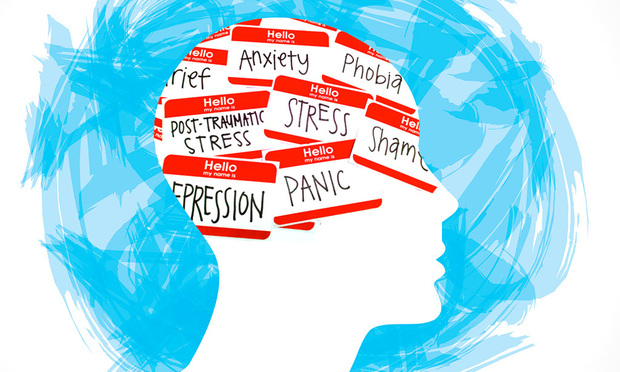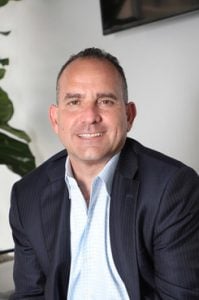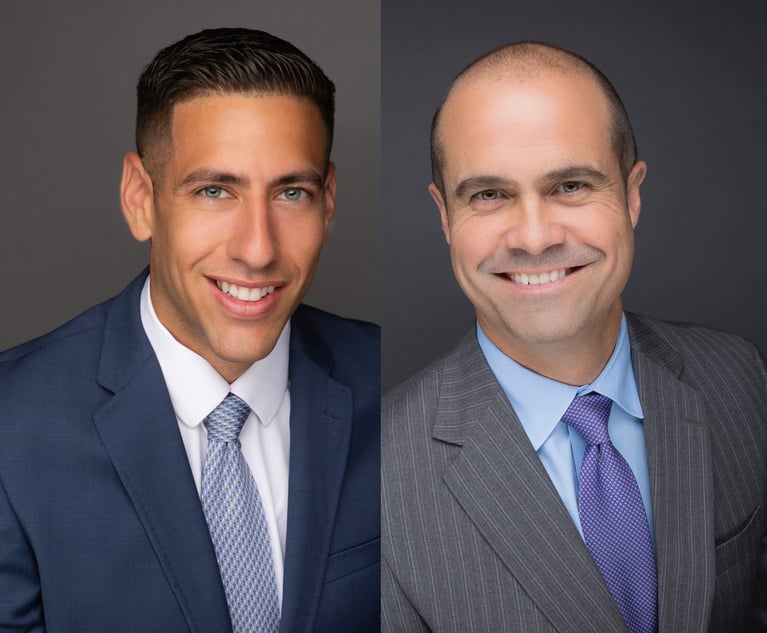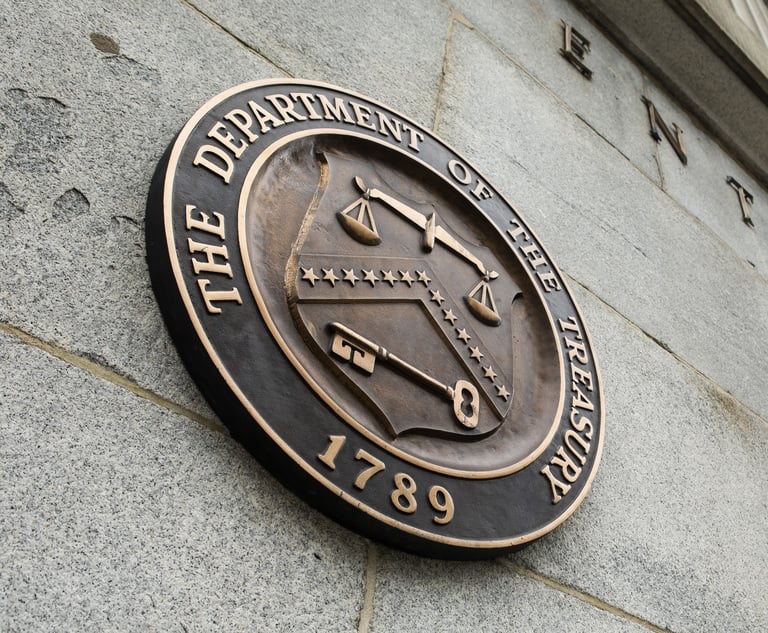Lawyers, Judges at High Risk for Mental Health Issues
The problems faced by legal professionals are hardly unique. They are endemic across the general population in the United States, according to medical professionals speaking at a conference focused on mental health issues in the legal profession.
March 01, 2019 at 03:12 PM
6 minute read

The mental health crisis that has struck hard at the legal profession will not be fixed until the issues of mental health are adequately addressed in the general population across the United States, said psychiatrists, judges and lawyers attending a conference focused specifically on mental health challenges in the legal profession.
Mental health experts and legal industry representatives praised recommendations made in the American Bar Association's National Task Force on Lawyer Well-Being Report—a 2017 groundbreaking study on the mental health crisis within the legal profession. But they stressed that the mental health crisis is a national crisis, hardly unique to the legal profession. And it must be addressed at a broader level if the legal profession is overcome the challenges of alcoholism, drug addiction, depression and suicide, they said.
The conference, organized by Duke University School of Law's Bolch Judicial Institute and held this week at the University of Miami, was organized by attorney Adam Moskowitz, who himself has dealt with issues of addiction and anxiety. Former U.S. Congressman Patrick Kennedy, former Greenberg Traurig co-president Hilarie Bass and Chief Judge D. Brooks Smith of the U.S. Court of Appeals for the Third Circuit, among others, made speaking appearances.
The mental health issues that are pervasive in the legal profession are merely a subset of the problems faced in the general population, experts said.
 Adam Moskowitz
Adam MoskowitzTo be sure, attorneys are particularly susceptible to depression and substance abuse, according to Dr. Charles Nemeroff, a leading researcher and psychiatrist at the University of Texas.
“Attorneys and judges are almost the prototypes for a high-risk population,” Nemeroff said.
But in a speech Thursday, he said the problem runs across professions in the United States. He also noted that the U.S. is an anomaly in the developed world, as suicide rates in the country are climbing. Citing data from the Centers for Disease Control, he said there are 47,173 suicides a year in the U.S.
“That's an entire law school class—sometimes two—every year that dies from suicide,” he said.
The legal profession has to recognize the tension between productivity and wellness, he said. Nemeroff and legal professionals pointed to the billable hour and workloads across all legal stratas as the biggest culprit.
“I read a story the other day about a public defender that's juggling 400 cases—how can he be well?” Nemeroff said.
While only 6 percent of the U.S. population exhibits “problematic drinking”—defined as hazardous drinking with possible dependence—21 percent of attorneys exhibit the signs, according to a 2016 study in the Journal of Addiction. For attorneys under 30, that number jumps to 36 percent. Over the course of an attorney's career, 61 percent will experience anxiety, 46 percent depression and 12 percent suicidal thoughts.
Law students report rates of binge drinking higher than their graduate school counterparts, according to a 2016 study in the Journal of Legal Education. An estimated 14 percent of law students reported using prescription drugs without a prescription, with 67 percent of those respondents saying they use drugs to study more effectively.
The judiciary does not yet have its own comprehensive study—a fact that exposes another serious gap in mental health progress, said David Shaheed, a former Indiana judge. While experts at the conference generally agreed that attorneys have begun to make strides in addressing mental illness in the profession, they said the judiciary has lagged behind.
It's already hard enough to get attorneys to overcome the stigma of asking for help because of fears of damaging one's reputation, Shaheed said. The problem is magnified for judges.
“In other countries, you choose whether you go the judicial route or practice route,” he said. “Any reporting or discussion of alcohol or drug issues is going to be seen as an impediment to your goal, as judges are seen as the pinnacle of legal achievement.”
Shaheed is working with a few organizations, including the National Judicial College, to conduct a judicial survey this spring.
Although experts said there is still a long way to go, many said some progress has been made, and when the stakes are life or death, any progress is meaningful.
“There has certainly been a big change in a lot of ways. When I started practicing in the '70s, alcohol was everywhere in the profession,” said Chief Justice Paul Reiber of the Vermont Supreme Court, adding that other attorneys would measure distances, not in miles or blocks, but in the number of beers drunk en route.
Judges and attorneys on several panels at the conference said they have taken actionable steps to implement the recommendations made in the ABA report on mental health.
For example, judicial officers in the Third Circuit, Ninth Circuit and Tenth Circuit have access to wellness programs. U.S. District Judge Timothy DeGiusti of the Western District of Oklahoma spoke of the Tenth Circuit's Health program, which provides education and confidential referrals to medical professionals. The Tenth Circuit Judicial conference also prominently features an on-site mental health professional.
“I believe strongly that judges have to be the leaders in this area,” DeGiusti said.
Sarah-Frances Nemeroff Warner, a labor attorney at The Law Firm of Paul A. Suhr in Raleigh, North Carolina, spoke about her efforts to improve mental health resources at her alma mater, the University of North Carolina School of Law, by lobbying for a full-time mental health professional. She said that when UNC's medical school—often used as a parallel to law school due to their similar heavy workloads—hired a full-time counselor, they were fully booked immediately.
She, along with medical professionals, also lauded the 22 states that removed a question on the Bar application asking if a law student has sought help to deal with a mental illness, arguing that this further stigmatizes mental illness and discourages students from addressing any mental health problems. Florida is not one of the states that abstain from asking mental health questions.
Many experts at the conference said the stigma associated with mental health is one of the biggest barriers to mental health wellness programs. But speaking about the issue, whether it be at a conference, a speaking engagement or even just during a lunch conversation, can help combat that stigma.
Terry Harrell, executive director at Indiana Judges and Lawyers Assistance Program, said providing programs is only half the battle. “We can have all the most wonderful resources in the world, but it doesn't matter if nobody accesses them,” she said.
This content has been archived. It is available through our partners, LexisNexis® and Bloomberg Law.
To view this content, please continue to their sites.
Not a Lexis Subscriber?
Subscribe Now
Not a Bloomberg Law Subscriber?
Subscribe Now
NOT FOR REPRINT
© 2025 ALM Global, LLC, All Rights Reserved. Request academic re-use from www.copyright.com. All other uses, submit a request to [email protected]. For more information visit Asset & Logo Licensing.
You Might Like
View All
Holland & Knight Hires Former Davis Wright Tremaine Managing Partner in Seattle
3 minute read


Local Boutique Expands Significantly, Hiring Litigator Who Won $63M Verdict Against City of Miami Commissioner
3 minute readTrending Stories
- 1Poop-Themed Dog Toy OK as Parody, but Still Tarnished Jack Daniel’s Brand, Court Says
- 2Meet the New President of NY's Association of Trial Court Jurists
- 3Lawyers' Phones Are Ringing: What Should Employers Do If ICE Raids Their Business?
- 4Freshfields Hires Ex-SEC Corporate Finance Director in Silicon Valley
- 5Meet the SEC's New Interim General Counsel
Who Got The Work
J. Brugh Lower of Gibbons has entered an appearance for industrial equipment supplier Devco Corporation in a pending trademark infringement lawsuit. The suit, accusing the defendant of selling knock-off Graco products, was filed Dec. 18 in New Jersey District Court by Rivkin Radler on behalf of Graco Inc. and Graco Minnesota. The case, assigned to U.S. District Judge Zahid N. Quraishi, is 3:24-cv-11294, Graco Inc. et al v. Devco Corporation.
Who Got The Work
Rebecca Maller-Stein and Kent A. Yalowitz of Arnold & Porter Kaye Scholer have entered their appearances for Hanaco Venture Capital and its executives, Lior Prosor and David Frankel, in a pending securities lawsuit. The action, filed on Dec. 24 in New York Southern District Court by Zell, Aron & Co. on behalf of Goldeneye Advisors, accuses the defendants of negligently and fraudulently managing the plaintiff's $1 million investment. The case, assigned to U.S. District Judge Vernon S. Broderick, is 1:24-cv-09918, Goldeneye Advisors, LLC v. Hanaco Venture Capital, Ltd. et al.
Who Got The Work
Attorneys from A&O Shearman has stepped in as defense counsel for Toronto-Dominion Bank and other defendants in a pending securities class action. The suit, filed Dec. 11 in New York Southern District Court by Bleichmar Fonti & Auld, accuses the defendants of concealing the bank's 'pervasive' deficiencies in regards to its compliance with the Bank Secrecy Act and the quality of its anti-money laundering controls. The case, assigned to U.S. District Judge Arun Subramanian, is 1:24-cv-09445, Gonzalez v. The Toronto-Dominion Bank et al.
Who Got The Work
Crown Castle International, a Pennsylvania company providing shared communications infrastructure, has turned to Luke D. Wolf of Gordon Rees Scully Mansukhani to fend off a pending breach-of-contract lawsuit. The court action, filed Nov. 25 in Michigan Eastern District Court by Hooper Hathaway PC on behalf of The Town Residences LLC, accuses Crown Castle of failing to transfer approximately $30,000 in utility payments from T-Mobile in breach of a roof-top lease and assignment agreement. The case, assigned to U.S. District Judge Susan K. Declercq, is 2:24-cv-13131, The Town Residences LLC v. T-Mobile US, Inc. et al.
Who Got The Work
Wilfred P. Coronato and Daniel M. Schwartz of McCarter & English have stepped in as defense counsel to Electrolux Home Products Inc. in a pending product liability lawsuit. The court action, filed Nov. 26 in New York Eastern District Court by Poulos Lopiccolo PC and Nagel Rice LLP on behalf of David Stern, alleges that the defendant's refrigerators’ drawers and shelving repeatedly break and fall apart within months after purchase. The case, assigned to U.S. District Judge Joan M. Azrack, is 2:24-cv-08204, Stern v. Electrolux Home Products, Inc.
Featured Firms
Law Offices of Gary Martin Hays & Associates, P.C.
(470) 294-1674
Law Offices of Mark E. Salomone
(857) 444-6468
Smith & Hassler
(713) 739-1250






